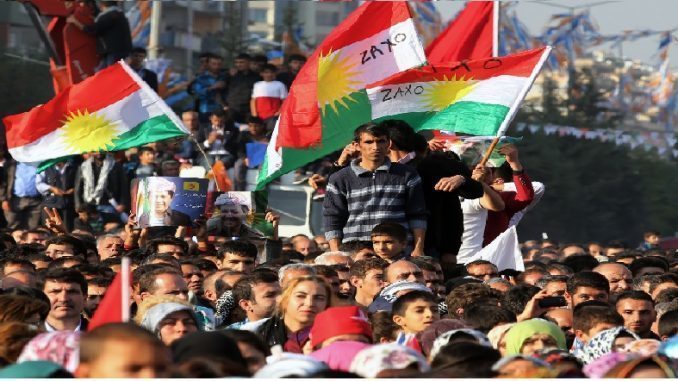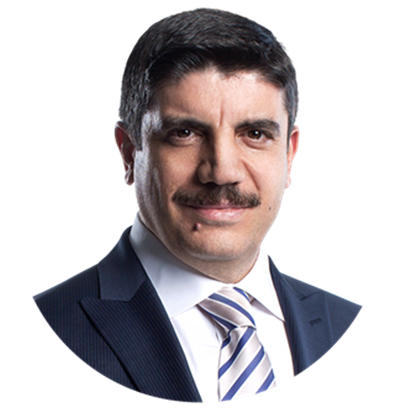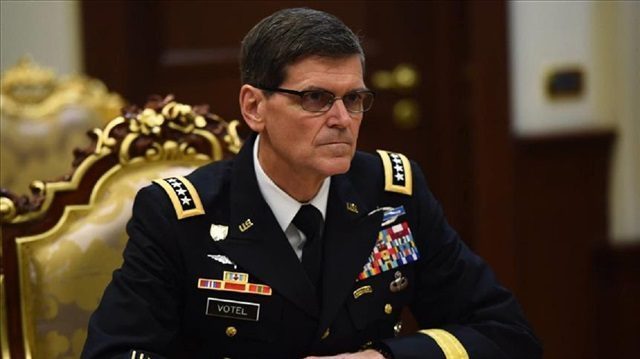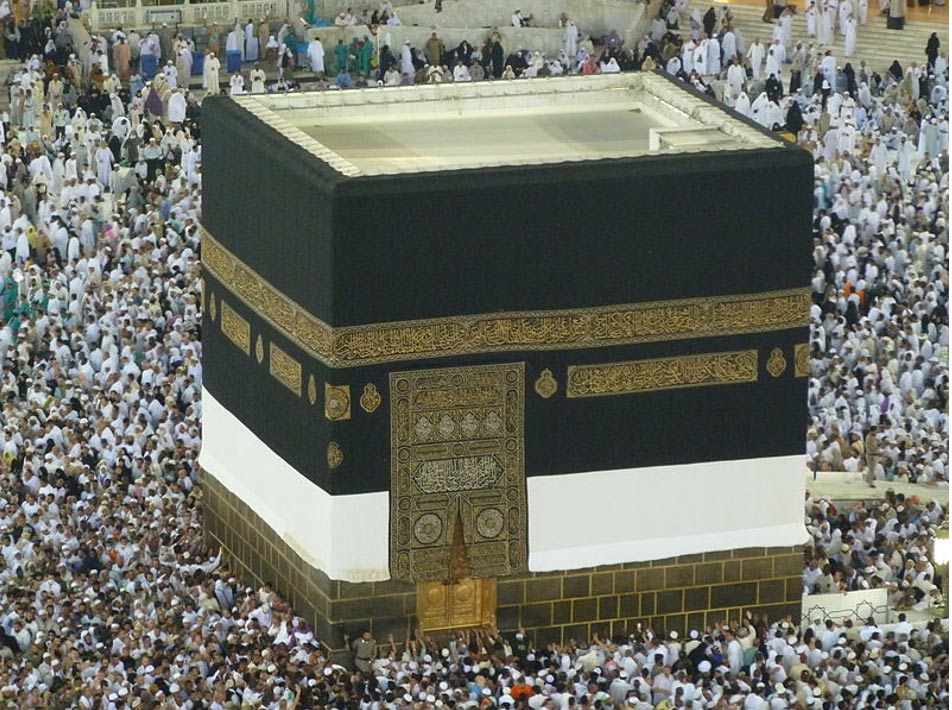
As the Mosul battle continues with big defeats for ISIS, the Iraqi Kurds look again for a safe future for northern Iraq where they can achieve their dream in an independent state. However, this dream may be far or even impossible as their current federalism faces chaos that threatens its existence.
Most locals in Iraqi Kurdistan would describe the past year as a crisis. Austerity measures driven by a financial crisis, political squabbling and a stalled Parliament and ongoing security problems thanks to the fight against the extremist group known as the Islamic State, were all problems that locals had to live with.
Within the last several months alone, there has been another assassination of a Kurdish journalist, an “honor” killing of a university student, death threats against a female Kurdish parliamentarian, bombing of an Iranian Kurdish party office that killed seven people and a string of foiled terrorist attacks in Sulaimaniyah province.
These incidents have occurred alongside ongoing demonstrations by civil servants for unpaid salaries, a nonfunctioning Kurdish parliament, swelling numbers of refugees and internally displaced persons, an expanded Kurdistan Workers Party (PKK) and Turkish airstrikes on PKK bases in northern Iraq. They have not only reversed most gains the Kurdistan Regional Government (KRG) has realized since 2011 but also leave the Kurdistan Region increasingly vulnerable to financial collapse and internal conflict, according to Denise Natali.
Financial problems
A financial crisis has been causing major problems in Iraqi Kurdistan since early in 2016. The crisis derived from various issues, including Kurdistan’s problem with Baghdad and the federal budget, the price of oil falling and political problems inside the region itself.
The KRG launched “independent” exports in 2014, but the Kurdish economy is now in tatters. KRG debt exceeds $22 billion. The availability of electricity has decreased to 2005 levels or about four hours a day in many areas without private generators. Tens of thousands of youths continue to migrate from the region.
Although the KRG exports about 600,000 barrels of oil per day to Ceyhan, these exports remain contentious, are dependent on Turkey and are largely sourced from Kirkuk — still a disputed territory — and not the Kurdistan Region. International oil companies have thus far abandoned 19 oil fields in the Kurdistan Region, including ExxonMobil’s withdrawal from three of its six fields.
Emails between the KRG Ministry of Natural Resources and Turkish officials released by WikiLeaks reveal the depth of the KRG’s financial crisis and the political fallout. In the eyes of some Kurds, the ministry’s attempt to secure an additional $5 billion in loans from Ankara and offer Turkey a larger stake in Kurdish-controlled oil fields may help protect the economic interests of the Kurdistan Region.
Others, however, including parliamentarians in Erbil, see things differently and oppose the ministry’s proposal as the “selling of the Kurdish land to Turkey.” Iraqi officials in Baghdad have also reacted critically, arguing that the KRG does not have the legal right to sell oil fields to Turkey.
Political crisis
The political crisis in Kurdistan erupted after Massoud Barzani, whose term as Kurdistan President ended on August 20, 2015, but refused to step down and remains unofficially in office. According to the law in Kurdistan, Barzani cannot run for the presidency anymore.
Journalists blamed the Kurdish ruling non-democratic system which has boosted tribal leadership rather than a nation-state system, blaming the Kurdistan Democratic Party (KDP) for trying to restrict the media, freedom and opposition voices.
other parties including the Patriotic Union of Kurdistan (PUK), Movement for Change (Gorran) are also part of the problem, according to analysts, as they sought power and control without caring to resolve the political void.
Barzani said in March 2016 he will not leave power until Kurdistan get statehood. “The day we have an independent Kurdistan, I will cease to be the president of that Kurdistan”
Analysts said that Barzani uses the issue for political purposes as the Kurdish state is a political and national issue and needs internal unity before everything else.
“That discussion over the creation of an independent Kurdish state at the moment is all but a poetic dream, adding that the Kurdish state that Barzani is talking about is a childish game as the real base and the internal and regional foundation are not prepared for it to happen.”
“The Kurds are divided,” said another analyst. “They don’t have a clear vision to unite and one side supports Turkey while the other supports Iran.”
Murders to sideline the rivals
As if the political chaos alone is not enough, there were several murders – many call them assassinations – in Iraqi Kurdistan in 2016 that were worrying signs for the region’s fledgling democracy.
On Nov. 22, a senior member of one of the region’s Islamic parties, Hoshyar Ismail, a cleric and a member of the Kurdistan Islamic Union, was gunned down outside his home in the city of Erbil. It’s the first time such a senior cleric has been murdered in the region for years and it prompted declarations from various politicians, including Massoud Barzani, that the killers would be brought to justice. Investigations are ongoing.
At the end of November, a local journalist, Shukri Zainadin, was found dead in what some have described as suspicious circumstances. Local security forces say he was attacked by a wild animal, possibly a pig, while out hunting, but others, including his employers, believe he was murdered. Zainadin had been working for the Kurdish News Network, which is owned by the Change movement.
In August another journalist, Wedat Hussein Ali, was kidnapped in the city of Dohuk and his body, bearing signs of torture, was found later.
Growing influence of PKK and increasing struggle
Expanded PKK influence in northern Iraq is feeding off these crises and reinforcing intra-Kurdish power struggles
In addition to its base in the Qandil Mountains, PKK groups are now embedded in the Sinjar Mountains to protect the Yazidis against future incursions by IS and to control this strategic territory. While the Patriotic Union of Kurdistan (PUK) and Gorran support or tolerate the PKK, Kurdistan Democratic Party (KDP) officials have threatened to potentially use force to eject the PKK from Sinjar.
Ankara has also warned that it will intervene in Sinjar in the spring if the peshmerga fails to drive out the PKK. Although acting PKK leader Murat Karayilan has recently said that PKK forces are prepared to withdraw from the Yazidi district of Sinjar, it is unlikely that PKK-affiliated groups will depart entirely.
Even if the KRG and Kurdish party officials have much to lose from internal conflict, other groups may not and could benefit from the weak Iraqi state, angry populations, and managed instability. In addition, as the KRG becomes increasingly dependent on Ankara, the Kurdish problem in Turkey remains unresolved, the Kurds in Syria demand autonomy and the PKK expands its influence, the KRG will inherit the transborder PKK problem.
The PKK in turn will attempt to benefit from the political void growing in the Iraqi Kurdish street, where many see it as an authentic Kurdish nationalist party. The PKK and other radicalized groups are also useful to regional states, including Iran, that seek to counter Barzani-KDP power and Turkey.
Left unchecked, these tensions will continue to undermine the economic growth and internal stability of the Kurdistan Region — even after Mosul’s liberation — and the KRG’s ability to act as an effective local partner to defeat IS. More serious attention should be paid to strengthening Iraqi state institutions, including the KRG and provincial administrations, economic diversification, revenue-sharing between Baghdad and Erbil, border security and relations between Ankara, Baghdad and the KRG. The PKK issue inside northern Iraq also needs to be addressed by including ways to reinstate a cease-fire with Ankara and resolve the Kurdish issues in Turkey and Syria.



